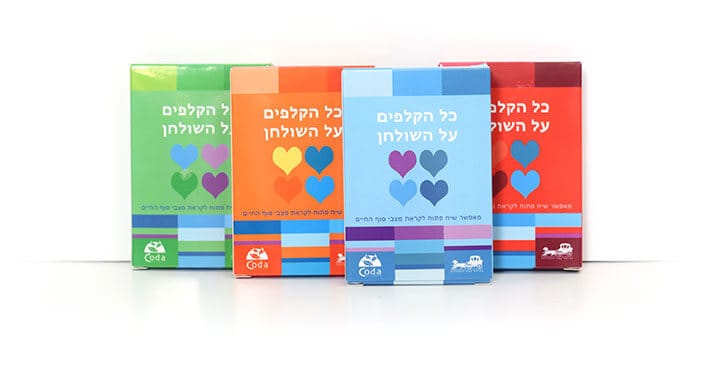“This is a specially designed card game intended for people of all ages and health conditions to be used to encourage open conversation and communication about the end-of-life period and decision making.
There is no correct answer. The purpose is to determine what feels right and meaningful to each individual.
A discussion about death can be challenging. Often, the subject of death is considered taboo.
However, its importance and effects are immense.
We prepare ourselves for all the important events in life; education, relationships, births, careers, and others.
However, most people do not prepare themselves for the discomfort, the fears, and the anxiety that cause us to avoid this topic.
The moment we open the discussion about death and the surrounding issues, we recognize the importance of making decisions that match our expectations regarding our final wishes. We must encourage the patients to live the best lives they can up until their demise.
The All Cards on the Table game offers a useful way to create an open conversation about end-of-life situations. The cards help make choices and prioritize the critical issues to the patient, enabling the patient to take responsibility for all end-of-life decisions.
Playing with family, close friends or members of the medical staff gives the participants an informed idea of how to offer support and help when needed.
Open communication enables the release of tensions and helps to meet what is needed.

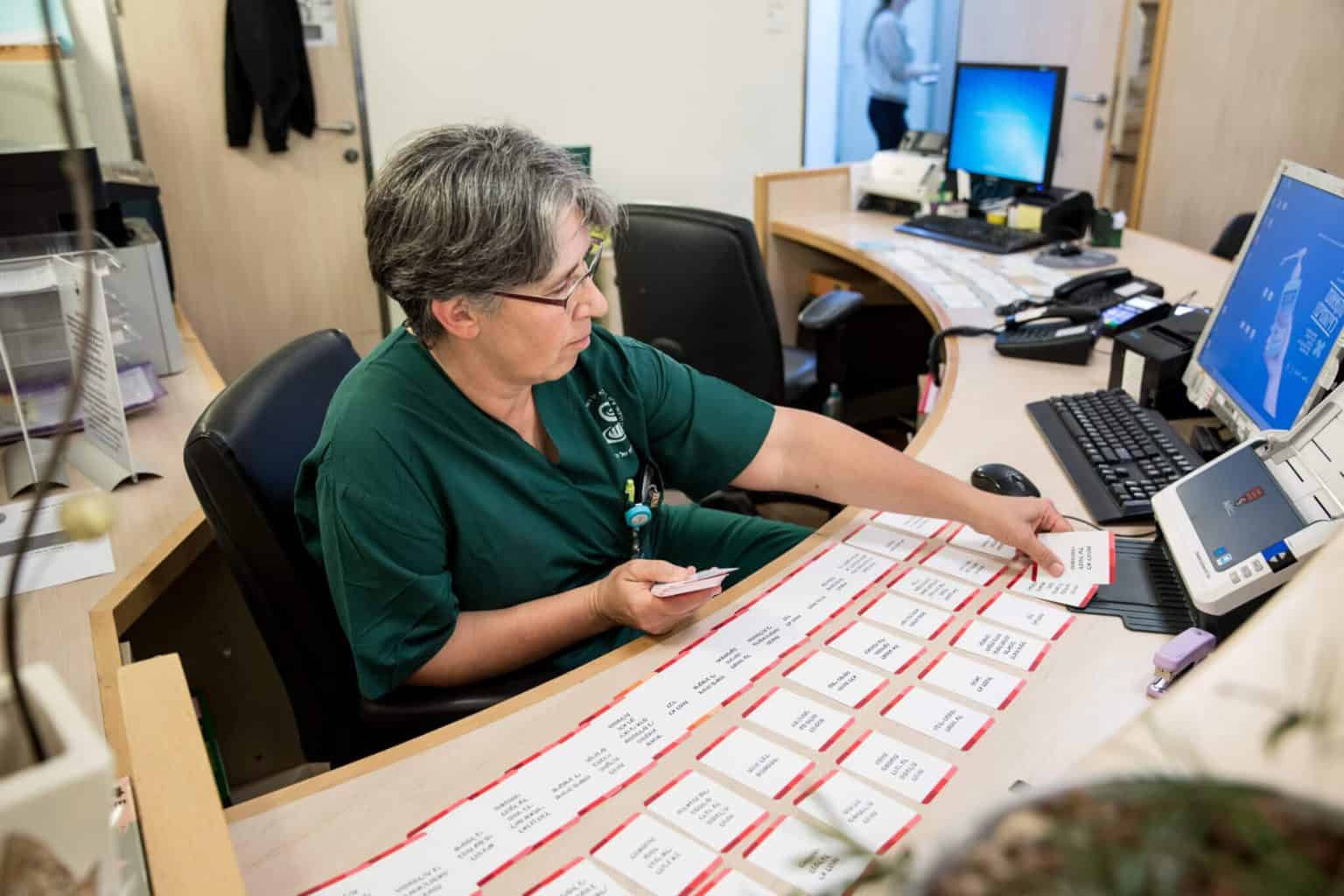
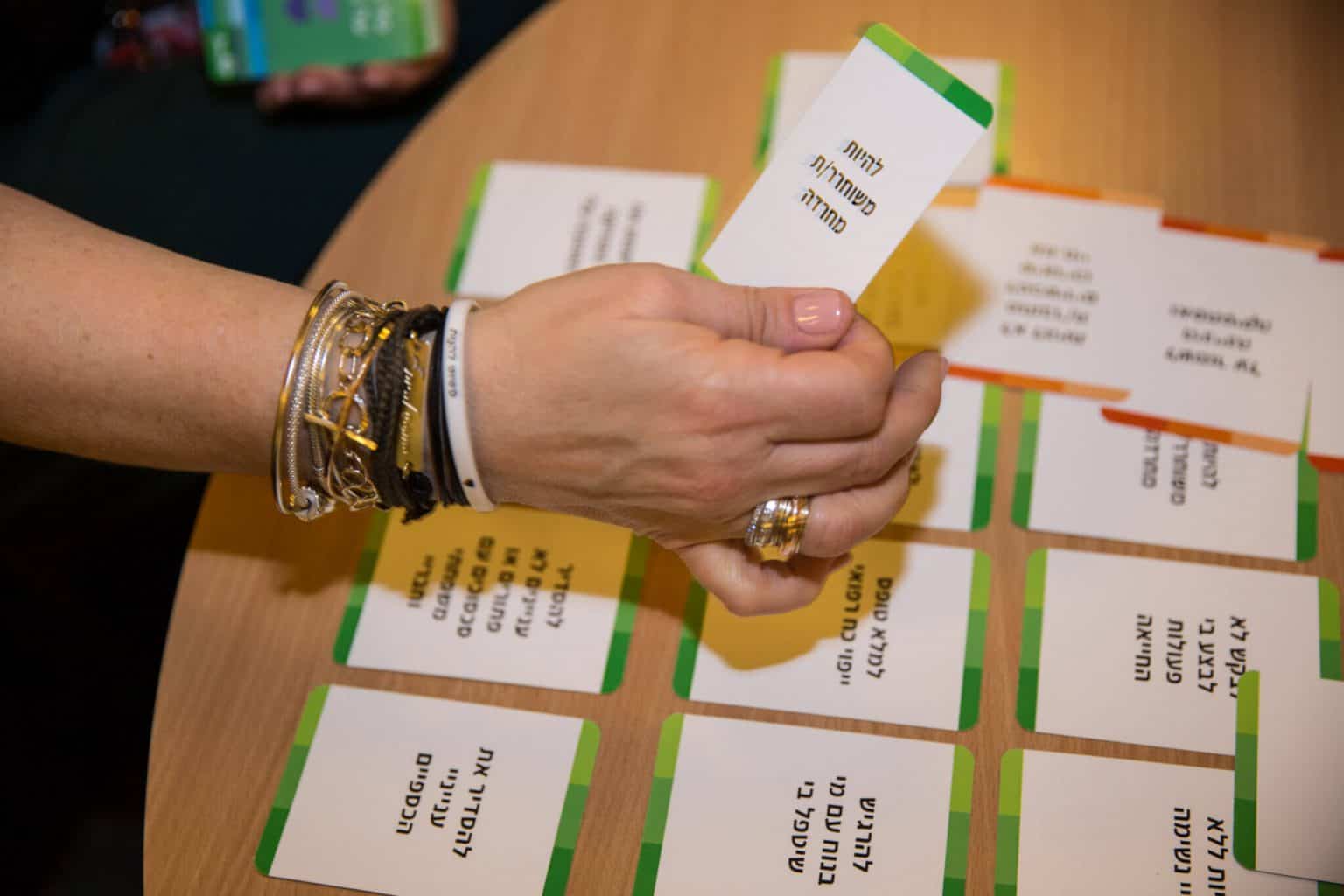
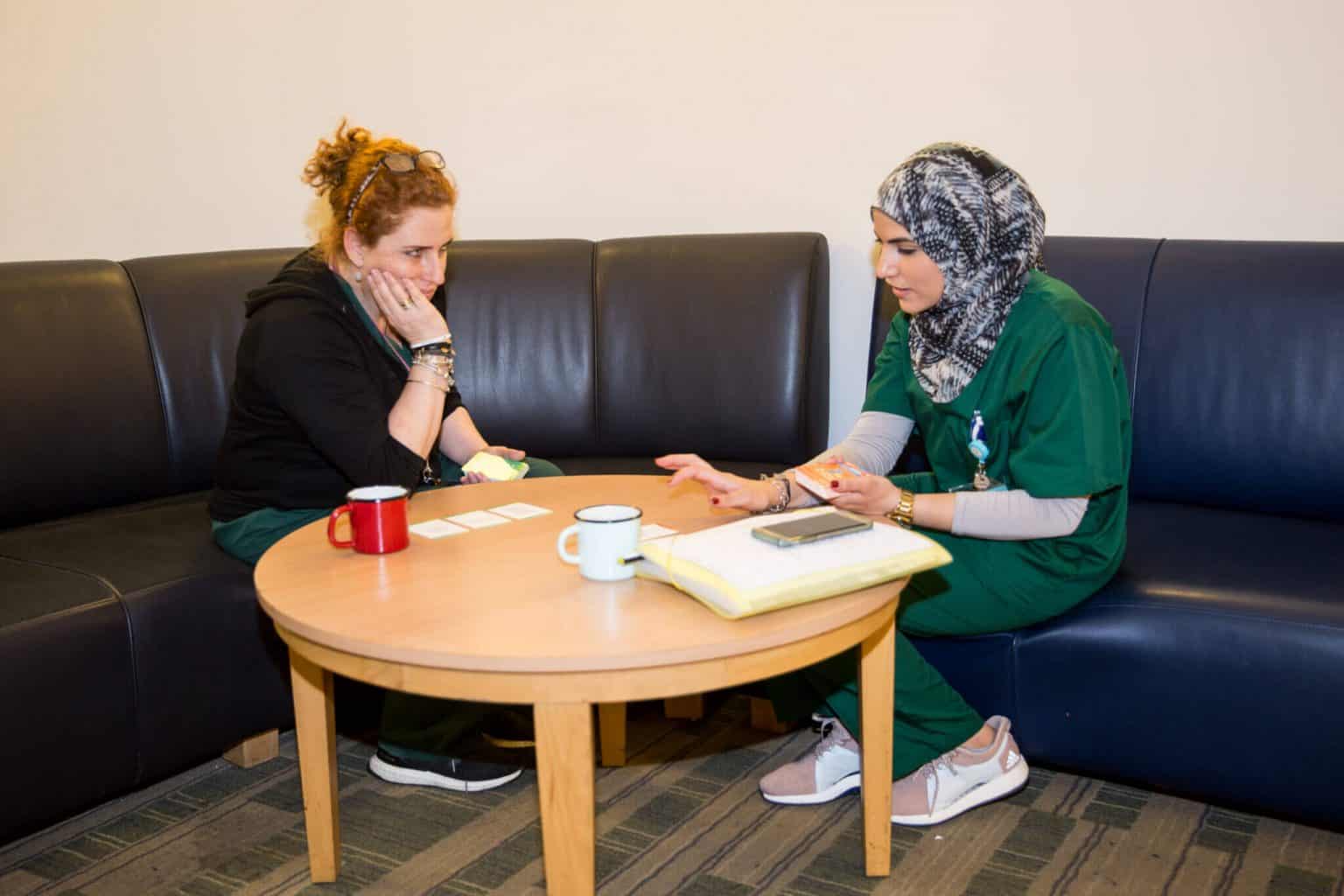
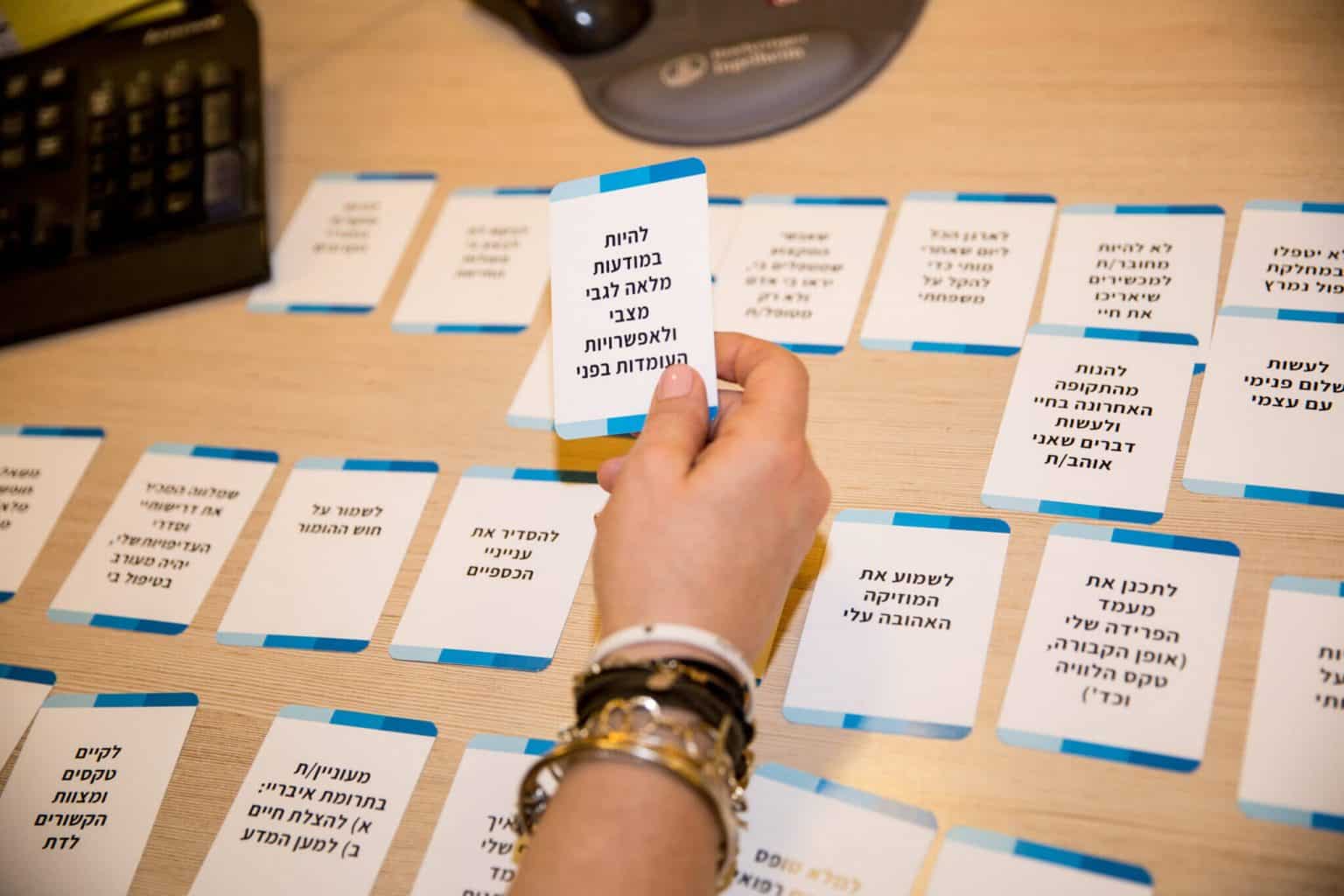
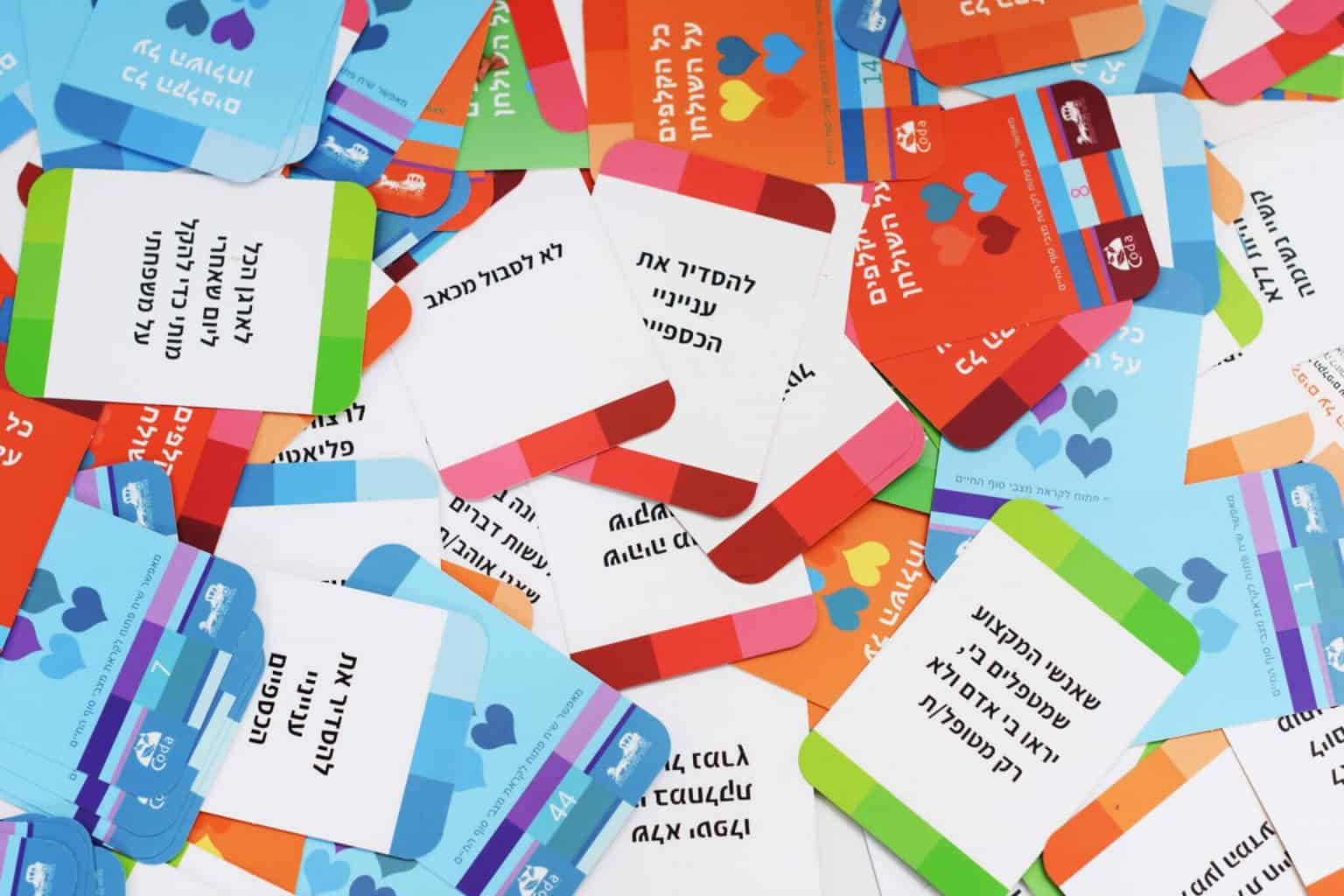
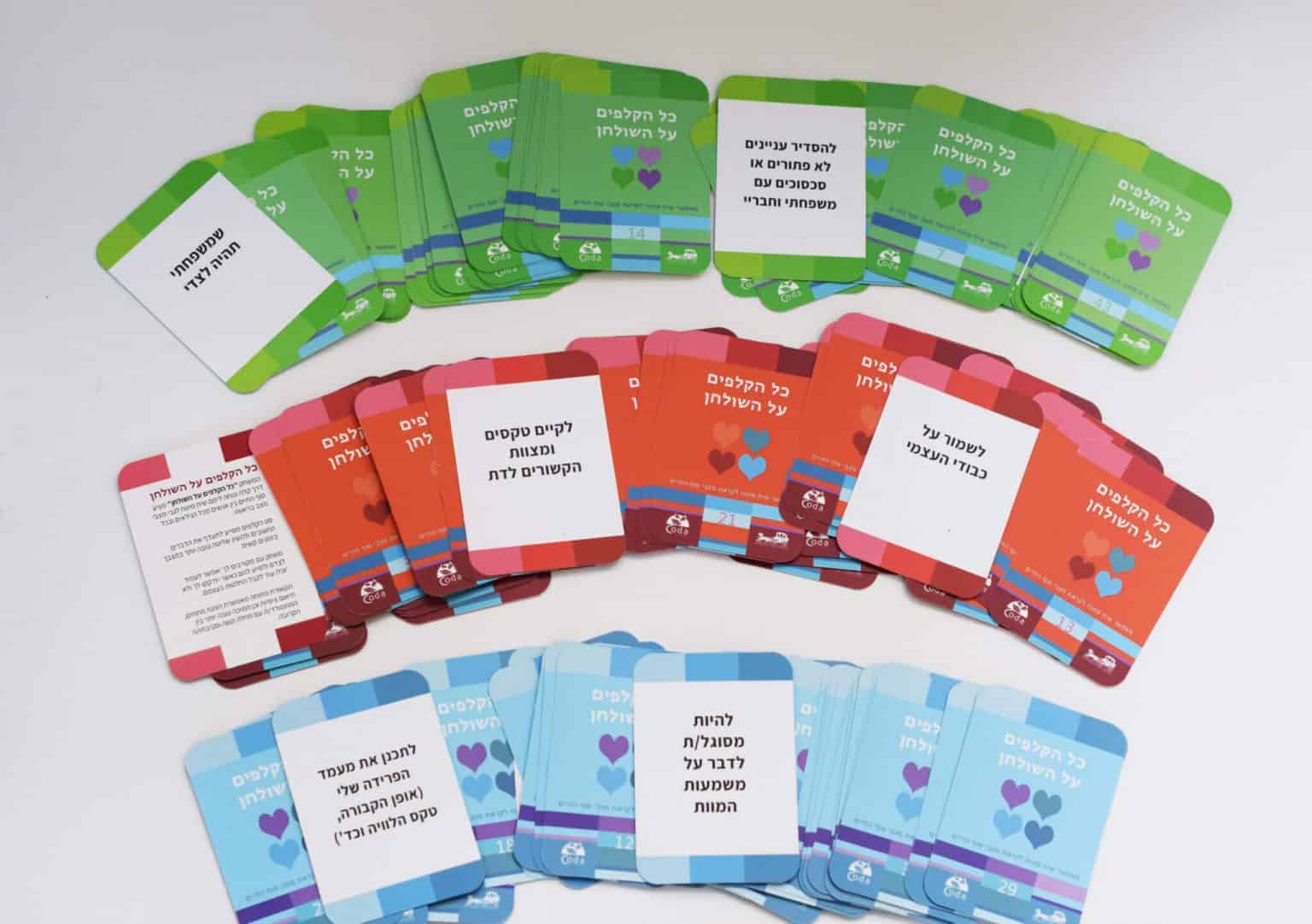
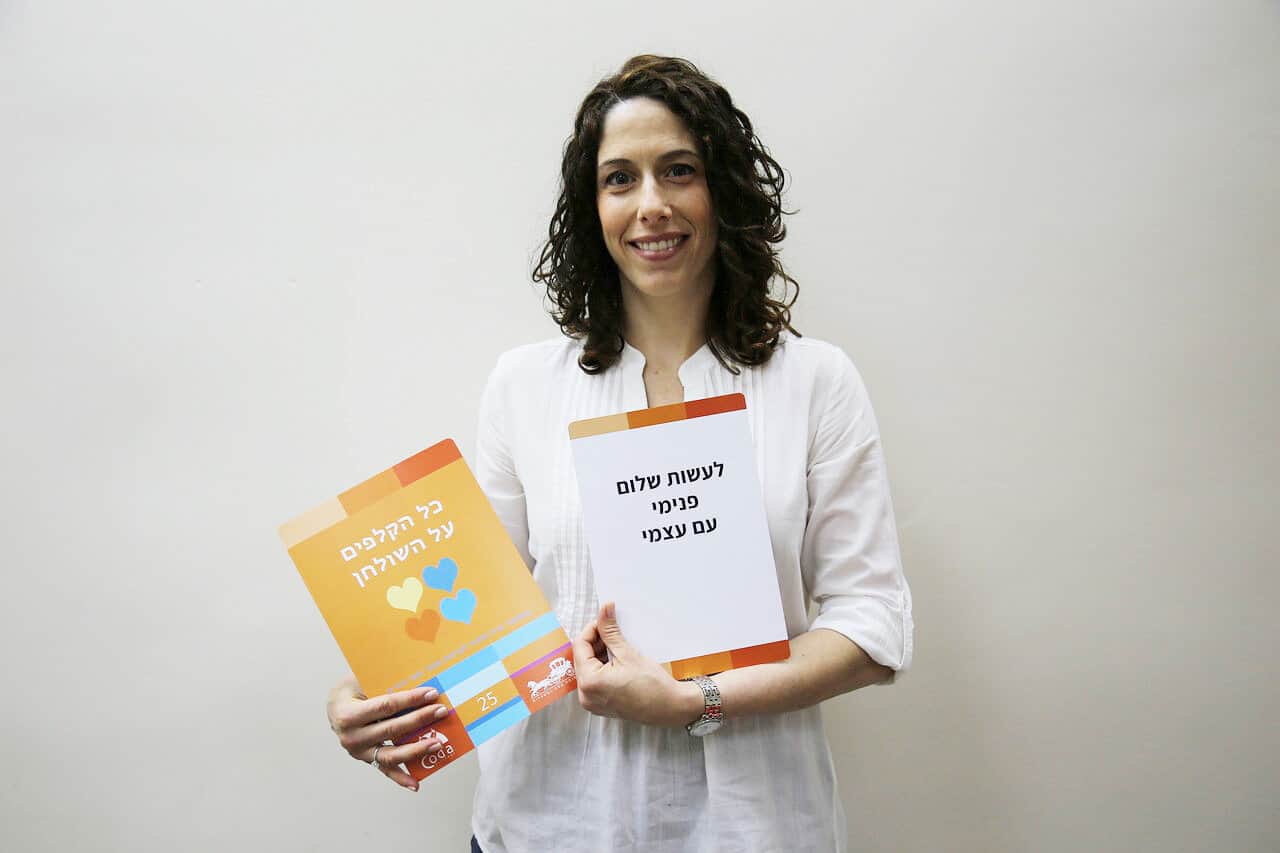
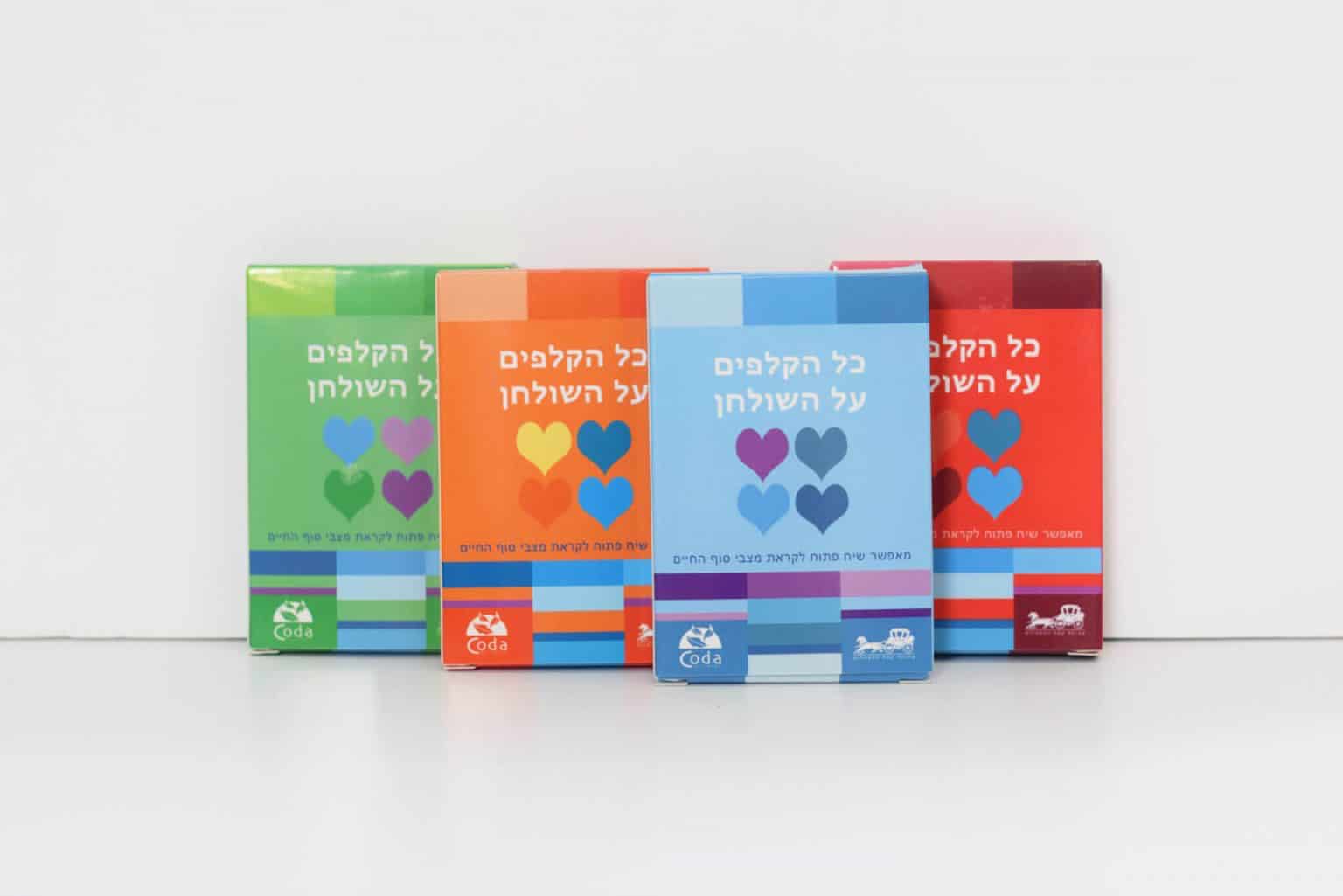
Each packet of All Cards on the Table contains 46 cards. Forty-five of them describe the needs and preferences which pertain to end-of-life matters. The last card is blank and can be written to express any matter of importance that is not mentioned in the other cards.
